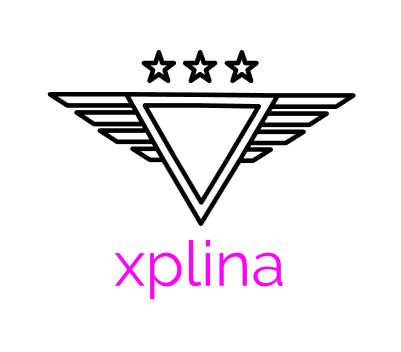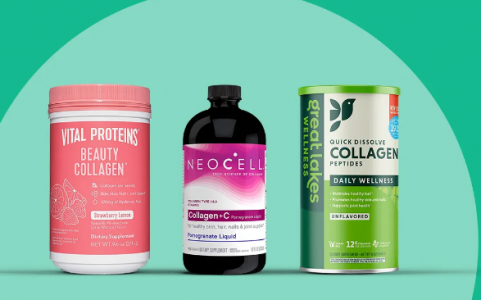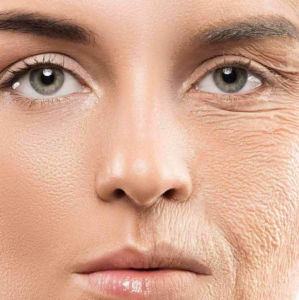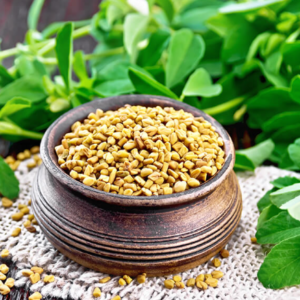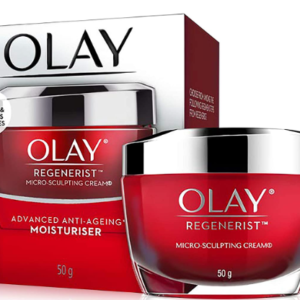How come so many people are using collagen supplements these days? Are there any health benefits associated with collagen? In this post, we will walk you through the definition, uses, and prevention of loss of collagen.
What is Collagen?
Collagen is the most abundant structural protein in humans and other animals. It is produced by connective tissue cells called fibroblasts and is responsible for maintaining the structural framework of animal tissues and cells.
It is found abundantly in the skin, bones, cartilage, tendons, and connective tissues.
Collagen is made of three amino acids (Hydroxyproline, Glycine, and proline).
Functions of Collagen
Endogenous collagen has a number of functions. Some of these include:
- Structural support to tissues and cells
- Role in cell to cell communication
- Role in immune response
- Role in tissue repair
- Role in cell migratory processes
Collagen Health Benefits
Collagen has a number of health benefits. Some of these include:
i. Improved bone health:
Using collagen supplements has been found to improve bone mineralization thus reduce risk of fracture associated with weak bones during and post menopause.
ii. Improved skin elasticity and hydration:
A daily dose of oral supplements among elderly users has been shown to improve the elasticity and moisture content of the skin.
Quick Read: How to Apply Makeup for Deep Set Eyes
iii. Improved hair thickness:
Collagen supplements have been shown to reverse hair thinning that’s common among the elderly.
iv. Improved muscle mass:
Combining collagen peptide supplements with exercise has been shown to improve mass mass among participants of all age groups.
Uses of Synthetic Collagen
Collagen for skin care is often synthetic. Here are some common uses of synthetic collagen and related products:
- Treatment of burns, diabetic ulcers, and wounds
- Use as an ingredient in some skin lotions and serums due to its moisturizing properties.
Pro Tip!
Collagen synthesis and maintenance slows down with age due to impairment of the function of fibroblasts and collagen fragmentation. Loss of collagen and elastin are thought to be responsible for the development of wrinkles, skin sagging, and other signs of aging.
Sources of Collagen
Besides the endogenous collagen that’s synthesized in the body, you can also make use of supplements. Common ones include topical and oral supplements.
Collagen supplements come in the form of:
- Creams and lotions
- Collagen Powder
- Collagen Capsules
- Collagen tablets
- Collagen Peptides
- Liquid
Foods rich in collagen include:
- Energy balls
- Yoghurt
- Oatmeal
- Animal bones, skin, ligaments, and knuckles of chicken and pigs.
- Sea foods such as jellyfish and fish skin & bones
- Protein foods such as beans, eggs, and chicken
- Vitamin C rich foods such as pepper, citrus fruits, berries, and green vegetables support the synthesis of collagen.
What Causes Collagen Loss?
A number of factors have been implicated in the loss of natural collagen. Some of these include:
Quick Read: Best Pixie Haircut Ideas
a). Aging:
The synthesis of collagen by fibroblast cells declines as we age. Meaning, less and less of this structural protein is produced as we get older. The steady drop in the amount of collagen produced by the body as we age is responsible for the development of signs of aging such as skin wrinkles, sagging of the skin, dryness.
b). Smoking:
Research studies have established that smoking hastens the degradation of collagen and hastens the development of aging signs.
c). Drinking alcohol:
Excessive drinking compromises the skin repair mechanisms and enhances the process of skin aging by reducing the synthesis of collagen.
d). High carbohydrate diets:
Diets rich in carbs, especially highly processed foods, have been found to reduce the turnover and functions of collagen thus leading to premature aging.
e). Excessive exposure to the sun:
Too much exposure to the sun has been found to enhance the degradation of collagen. Consider wearing sunscreens whenever you are going to stay outdoors for long periods during summer.
Quick Read: Types of Body Shapes for Women
Foods that Enhance Collagen Loss
Certain types of foods that are rich in Advanced Glycation End products (AGEs) have been found to enhance the degradation of collagen. AGEs are glycotoxins that have been implicated in the degradation and stiffening of skin collagen. They are also said to induce the inactivation of collagen repair proteins. Some of the foods rich in AGEs include:
- Fried foods e.g. chicken, french fries
- Roasted & grilled meat
- Hot dogs
- Bacon
Try as much as possible to avoid foods rich in AGEs since they disrupt the synthesis of collagen. Always focus on foods rich in collagen.
Quick Read: Most Beautiful Asian Women
Collagen Supplements Vs Proteins Foods
While eating collagen and its supplements is a great way to boost your collagen levels, you don’t have to do them routinely. Instead, just ensure you eat a balanced diet rich in vitamin D & C, calcium, proteins, and zinc.
How to prevent Collagen Loss
Is it possible to prevent collagen loss? First of all, it is important to note that the natural age-related decline in collagen synthesis is inevitable. However, you can slow down the process. Here’s how:
- Quit smoking
- Avoid excessive alcohol consumption
- Avoid high carb diets rich in processed foods
- Eat a balanced diet rich in proteins, zinc, calcium, and Vitamins C & D
- Limit consumption of foods high in Advanced Glycation End products (AGEs) to reduce degradation of skin collagen.
Collagen Side Effects
Besides its countess health benefits, research studies have also discovered a number of rare but noteworthy collagen side effects. Some of thee include:
1. Gastrointestinal disturbances e.g. constipation, appetite loss, etc.
2. Allergic reactions i.e. some people are allergic to the free glutamic acid in collagen proteins
3. Sleep disturbance and headaches have also been reported
4. Kidney stones: Collagen is rich in hydroxyproline, an amino acid which is readily converted into oxalate. Calcium complexes with oxalate to form calcium oxalate, also called kidney stones. If one has a history of kidney stones, they should consider not using collagen supplements at all.
5. Elevated calcium levels following daily consumption of collagen supplements can predispose to nausea, vomiting, and bone related problems.
Quick Read: Best Shag Hairstyles for Women
Wrap Up
Collagen plays an important role in maintaining the integrity of bone, skin, tendon, cartilage, and connective tissues. The body naturally synthesizes this structural protein, though the rate of production declines with age. Consumption of collagen supplements has been found to be beneficial especially among post menopausal women and people at risk of osteoporosis. Foods and fruits rich in vitamin D & C, calcium, zinc, and proteins enhance the synthesis of collagen.
